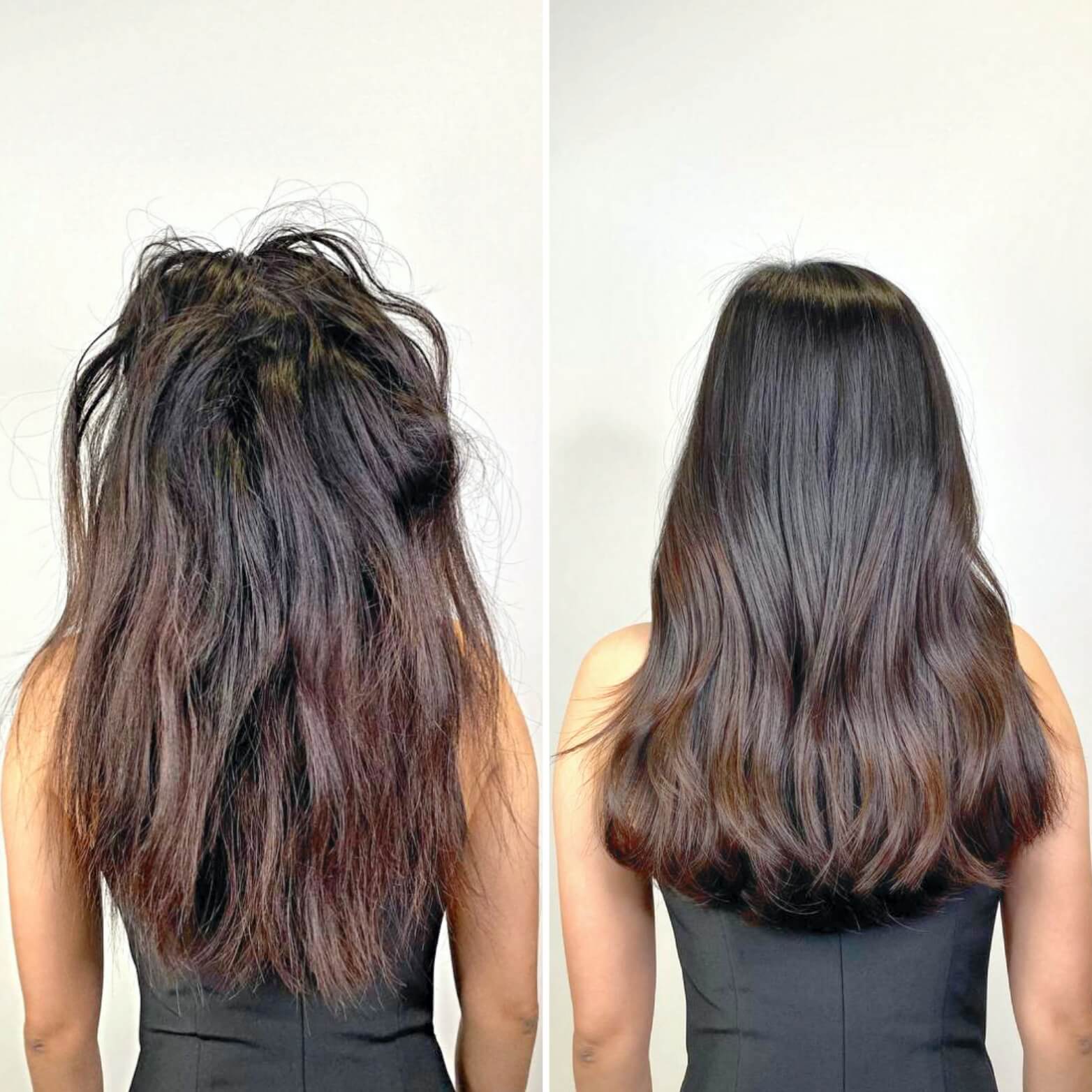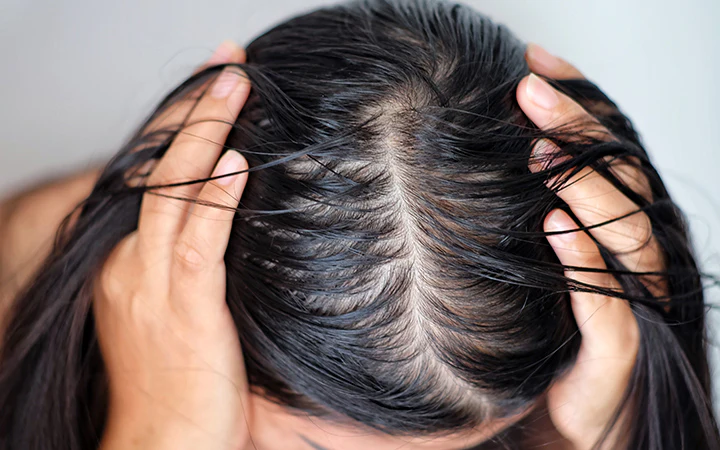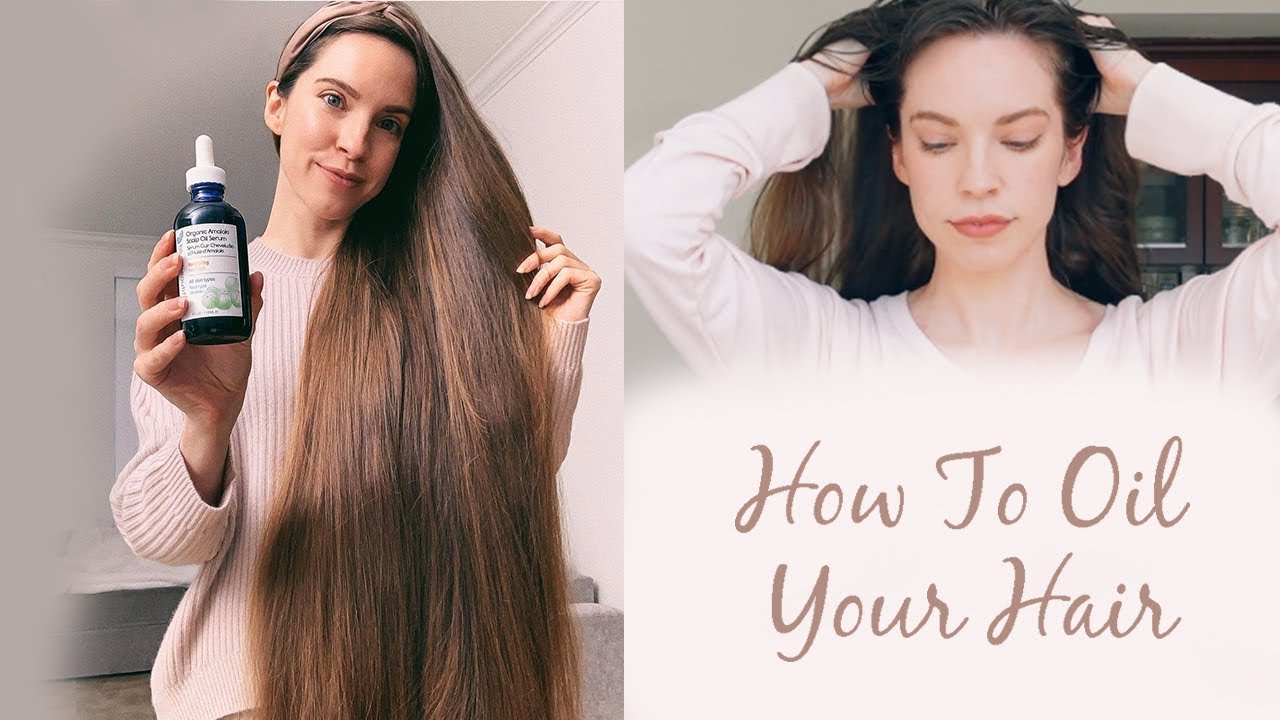Have you ever looked in the mirror and wondered, why is my hair frizzy? You’re not alone! Frizzy hair is a common issue for many—whether you’re a kid, teen, or adult. In this article, we’ll explore the main reasons behind frizzy hair and share expert tips to help you manage it. Ready to learn how to get smooth, sleek hair? Let’s dive in!
Why Does Hair Frizz? Let’s Break It Down
By understanding what causes frizzy hair, you can alleviate the stress and anxiety it may cause, and manage your strands effectively. Let’s delve into the main reasons your hair frizzes, empowering you to make informed decisions about your hair care routine.
Humidity: The Hidden Villain Behind Frizzy Hair
Humidity is a big reason why hair frizzes. When the air is moist—usually when the humidity is over 60%—your hair soaks up the extra moisture. This causes it to puff, swell, and lose its smoothness. Think of your hair as a sponge. In humid weather, it absorbs air moisture, which makes it frizzy.
Example: If you live in a humid place or during the summer months, you may notice your hair gets frizzy, even if you styled it perfectly that morning. That’s because humidity opens your hair’s cuticle, making it frizzy.
Damage: How Heat Styling and Chemical Treatments Lead to Frizz
Using hot tools like curling irons or flat irons can damage your hair. Heat weakens your strands, making them more prone to frizz. Similarly, chemical treatments such as hair coloring, perms, and bleaching strip hair of its natural moisture. When this happens, the hair becomes brittle and frizzy.
Example: If you frequently straighten your hair with a flat iron or bleach your hair, it might look frizzy because the cuticle (the outer layer of your hair) is damaged.
Dryness: The Root Cause of Frizzy Hair in Curly and Wavy Textures
Dry hair lacks moisture, which causes frizz. Curly and wavy hair is naturally dry because oils from your scalp travel harder down the hair shaft. When hair doesn’t get enough moisture, it becomes rough and frizzy.
Curly hair often looks more frizzy than straight hair because scalp oils are harder to reach the ends. A deep-conditioning mask once a week can keep curls hydrated and smooth.
Health Factors: How Your Well-being Affects Your Hair
Your health affects your hair’s texture. Hormonal changes, like those during pregnancy or puberty, can make hair frizzy. Health issues such as thyroid imbalances or anemia can also lead to drier hair. Plus, certain nutrient deficiencies, like a lack of Vitamin A or B, can cause brittle, frizzy hair.
If your hair has recently become more frizzy and dry, it could be a sign of a health issue or vitamin deficiency. It’s best idea to consult a doctor if you notice sudden changes in your hair.
Using the Wrong Hair Products: Are You Unintentionally Causing Frizz?
Some shampoos and conditioners can worsen frizz. Products with sulfates, alcohol, or harsh chemicals strip your hair of its natural oils. This leaves it dry and frizzy.
If you use a shampoo with sulfates, it might dry out your hair, making it frizzy. Look for sulfate-free shampoos and conditioners that contain natural oils, like coconut oil or argan oil, to keep your hair hydrated.
Stress: An Overlooked Cause of Frizzy Hair
Stress can affect your hair! When you’re stressed, your body produces more cortisol. This can mess with your hair’s moisture levels, making it dry and frizzy.
If you’ve been stressed and your hair feels frizzy, it might be linked to stress levels. Practices like yoga or meditation can reduce stress and improve your hair’s appearance.
Vitamin Deficiencies: What Your Hair Might Lack
A lack of vitamins and nutrients can also cause frizzy hair. For instance, a deficiency in Vitamin D, B vitamins, zinc, or iron can lead to dull, brittle hair prone to frizz.
If your diet lacks fruits, vegetables, and proteins, it could affect your hair. Consider talking to a healthcare provider about whether you need supplements or adjustments to your diet.
How to Prevent Frizzy Hair: Tried-and-True Solutions
Now that you know what causes frizz, let’s discuss some ways to prevent it and keep your hair smooth.
Hydration is the Key
Hydration is not just important for your body, but also for your hair. Understanding the importance of hydration can help your hair retain moisture, keeping it smooth and less prone to frizz.
Aim for at least eight glasses of water a day to keep your hair hydrated from the inside out.
Use the Right Hair Products for Your Hair Type
Choosing the right products for your hair type is crucial. Curly or wavy hair needs more moisture, so look for hydrating shampoos and conditioners. Straight hair may benefit from products that add shine and volume. Ingredients like shea butter, coconut oil, or keratin can keep your hair moisturized.
Add a leave-in conditioner or anti-frizz serum to your routine to seal in moisture.
Limit Heat Styling and Protect Your Hair
Heat-styling tools can make frizz worse. Limit how often you use them, and always apply a heat-protectant spray before styling. This protects your hair from damage.
Try air-drying your hair more often to prevent frizz caused by heat damage.
Shield Your Hair from Humidity
On humid days, use a humidity-blocking spray to protect your hair. These sprays form a barrier over your hair, making it difficult for moisture to get in.
If you’re spending time outside on a humid day, consider wearing a hat or scarf to limit your hair’s exposure to moisture.
Regular Haircuts Are Essential
Trimming your hair every 6-8 weeks prevents split ends. Split ends can make frizz worse because they travel up the hair shaft, causing more breakage and frizz.
Regular haircuts will keep your hair looking smooth and healthy.
Eat a Balanced Diet
Eating a diet rich in omega-3 fatty acids, like salmon and walnuts, as well as plenty of fruits, vegetables, and lean proteins, can help keep your hair healthy. Healthy hair is less likely to frizz.
Maintaining a healthy diet doesn’t just benefit your body—it also keeps your hair shiny and strong.
Stress Less for Healthy Hair
Managing stress keeps your hair healthy. Try relaxation practices like yoga, meditation, or even a walk in nature to lower stress levels and reduce frizz.
Less stress means healthier hair, so relax regularly.
Conclusion: Say Goodbye to Frizz and Hello to Healthy Hair!
Frizzy hair can be challenging, but it’s possible to manage with the right care. Whether it’s caused by humidity, damage, dryness, or stress, you can control frizz. Drink plenty of water, choose the right products, and manage stress to keep your hair smooth and sleek.
If your frizz doesn’t improve, it might be time to see a hair care professional or dermatologist for personalized advice. Remember, healthy hair starts from within, so focus on your overall well-being for long-lasting results!



